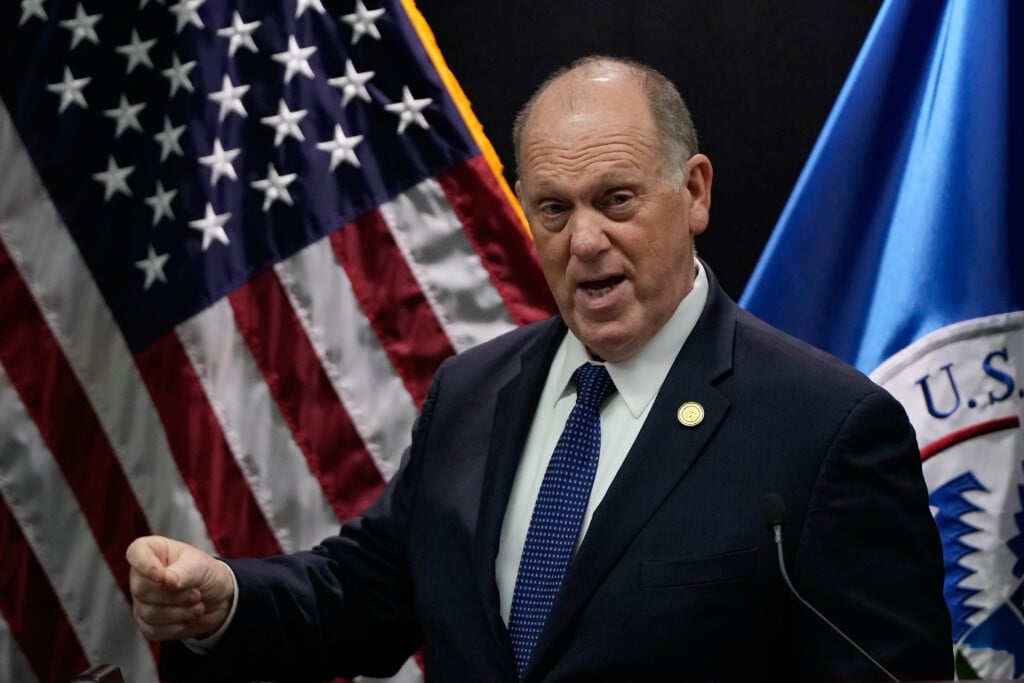North Dakota university research could see ‘devastating’ cuts, officials warn

GRAND FORKS, N.D. (North Dakota Monitor) — Representatives of North Dakota’s two largest universities say Trump administration efforts to curb federal spending have already cost the state millions in research funding — and their institutions expect to lose millions more in the coming years.
The executive branch is attempting to slash research spending by terminating existing grants and appropriating less money for research in the upcoming budget.
Scott Snyder, the University of North Dakota’s vice president for research, told a legislative committee on Aug. 21 that the Trump budget proposal cuts research funding from the National Institutes of Health and the National Science Foundation by 50%.
“Big time cuts,” Snyder said.
Snyder and Heidi Grunwald, interim vice president for research at North Dakota State University, pointed to an Aug. 7 executive order from President Donald Trump titled “Improving oversight of federal grantmaking” with several stipulations on which grants can be approved.
Grunwald said the order will likely mean fewer grant opportunities and could slow the release of money.
“It could have devastating effects on total awards for 2026,” Grunwald said during the Legislature’s Higher Education Institutions Committee meeting in Dickinson, North Dakota.
Trump’s executive order is critical of National Institutes of Health and National Science Foundation research. It said one 2024 study claimed that more than one-quarter of new National Science Foundation grants “went to diversity, equity, and inclusion and other far-left initiatives.” It did not name the study.
It also noted that a “substantial portion” of some grants goes to university facilities and administrative costs.
“Awards must, where applicable, demonstrably advance the President’s policy priorities,” the order stated, and can’t promote “anti-American values.”
Grant cancellations
UND has already had eight awards canceled, resulting in the loss of more than $3 million, mostly from the Department of Health and Human Services, Snyder said. This includes three National Institutes of Health grants.
One funded a program called U-RISE, which trained eight undergraduate students to become biomedical researchers.
The program provided students with a stipend for their work, though that money dried up in February when NIH canceled the grant, Snyder told the North Dakota Monitor. UND lost roughly $900,000 that it expected to receive over the next three years for the program.
“My office went ahead and covered their pay for the rest of the semester,” Snyder said in an interview. “We wanted to make sure that these students had a way to eat, they had a way to drive their cars.”
UND also lost a little less than $150,000 in grant money from the NIH for the Centers for Disease Control and Prevention Health Equity Ambassador program, which “supports CDC employees in sharing information about public health careers and promoting healthy behaviors,” according to the university.
The NIH also terminated a grant that supported mentorship and training opportunities for predoctoral students. The award — which funded a graduate student’s research on breast cancer — was in its last year, so UND did not lose any money from the cancellation, according to the school.
Keeping the lights on
Snyder and Grunwald told lawmakers about the impact of potential changes on facilities and administrative costs that federal funding will cover.
Universities negotiate how much money can be applied to keep the lights on, keep buildings maintained and pay for some salaries for people not directly involved in research, such as custodians and finance staff.
Grunwald said the Trump administration is trying to cap the rate at 15%.
UND calculated the potential loss at $15 million per year; NDSU’s estimate was $9 million per year.
Snyder said there is more than $1 million at risk in funding for the Energy and Environmental Research Center and the College of Engineering and Mines at UND.
“The Department of Energy is where we’re having our biggest challenges in getting the money to flow,” Snyder told committee members.
EERC Director Charles Gorecki said in an interview that the Department of Energy is slow to announce new projects.
Snyder told the legislative committee that UND is 30% to 40% behind the pace of federally funded projects compared with last year.
Grunwald said NDSU, in fiscal year 2024, had 799 awards worth $142 million, and that dropped to 693 awards worth $92 million in fiscal year 2025.
“This is in part due to inaction by agencies from January 2025 to the present,” she said.
The U.S. Department of Agriculture research funding is shrinking, Grunwald said, but the tax break and spending cut measure that Republicans call the “big, beautiful bill” does have money for agricultural research facilities like NDSU through the USDA.
Snyder said there is some reason for optimism. Members of some Senate subcommittees are pushing back on research cuts and trying to keep funding rate for facilities and administrative costs flat.
“The 15% would be very damaging to our institutions,” Snyder said.
North Dakota Monitor Deputy Editor Jeff Beach can be reached at jbeach@northdakotamonitor.com. Reporter Mary Steurer can be reached at msteurer@northdakotamonitor.com.






